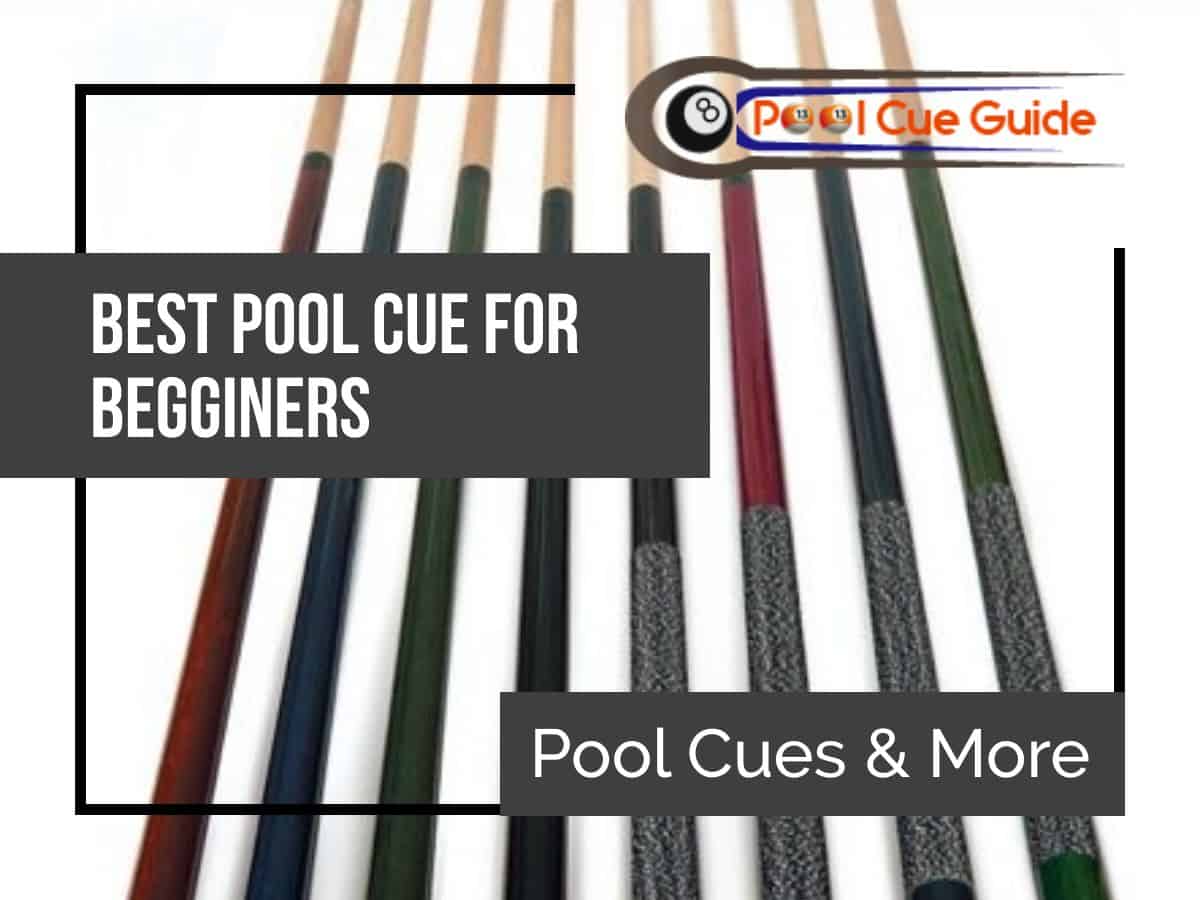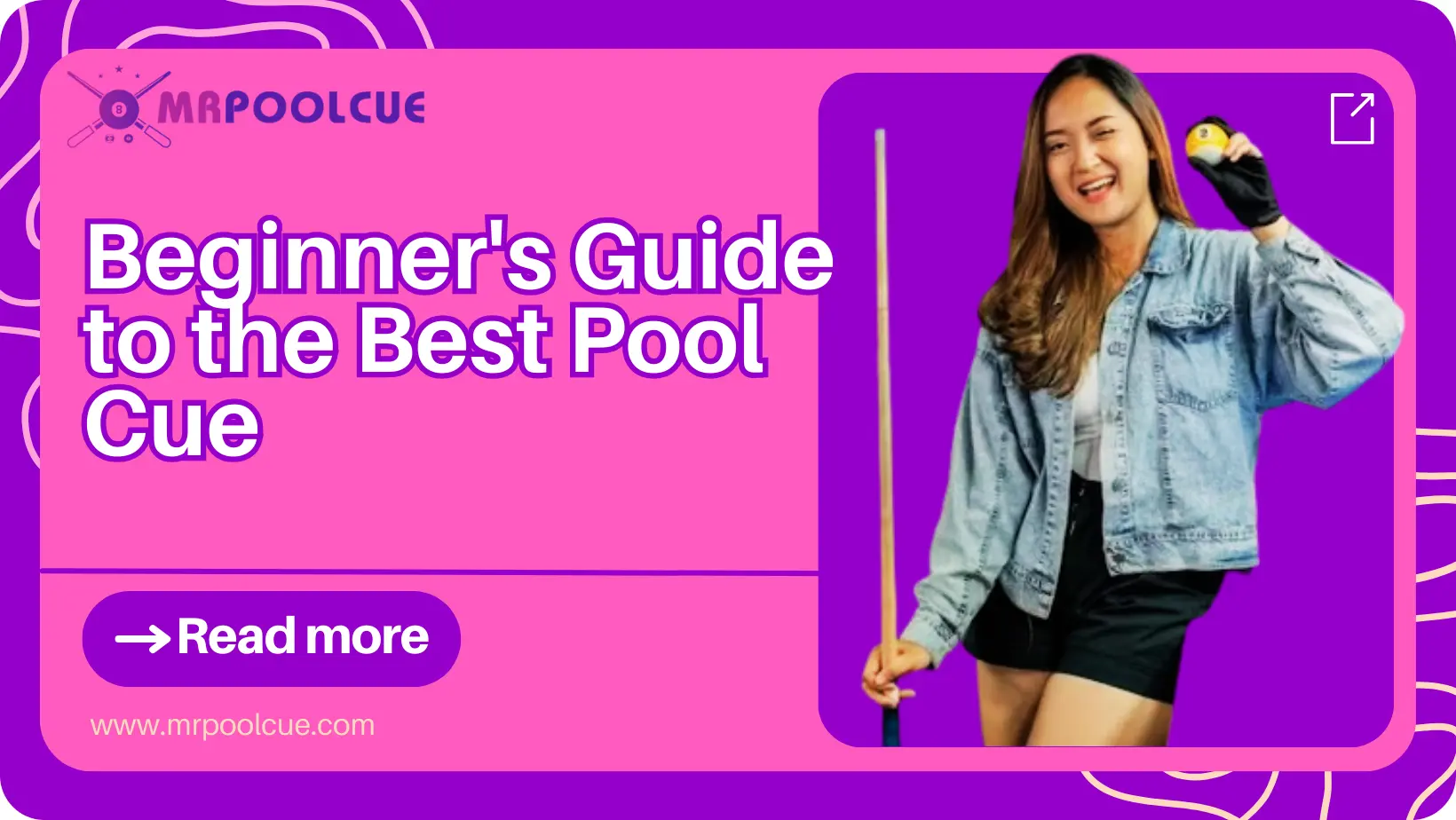So, you're ready to dive into the world of pool and billiards, huh? That's awesome! But hold up a sec, because choosing the right pool cue as a beginner can feel like trying to solve a Rubik's cube blindfolded. With so many options out there, it's easy to get overwhelmed. Lucky for you, we've got your back. In this ultimate guide, we'll break down everything you need to know about the best pool cue for beginners, helping you find the perfect stick to start your journey.
Look, we get it. You don't want to end up with some random stick that feels like swinging a broomstick. And you definitely don't want to splurge on something fancy only to realize it's way too advanced for your skill level. That's why we're here—to guide you through the process, step by step, so you can make an informed decision. Whether you're looking to play casually with friends or have aspirations of becoming the next pool champ, this guide is for you.
By the time you finish reading, you'll know exactly what to look for in a pool cue, how to avoid common mistakes, and which brands are worth your hard-earned cash. Ready to hit the ground running? Let's get started and find that perfect stick for you!
Table of Contents
- Why Choosing the Best Pool Cue Matters
- Key Features to Look for in a Pool Cue
- Types of Pool Cues for Beginners
- Materials That Make a Difference
- Weight and Length: Finding the Perfect Balance
- Top Brands for Beginner Pool Cues
- How Much Should You Spend?
- Cue Maintenance: Keep It in Tip-Top Shape
- Common Mistakes to Avoid
- Wrapping It Up: Your Perfect Stick Awaits
Why Choosing the Best Pool Cue Matters
Alright, let's get real for a moment. Choosing the right pool cue isn't just about picking something that looks cool or matches your outfit (though, hey, aesthetics matter too). The truth is, your pool cue is an extension of your game. Think of it like a golfer's club or a tennis player's racket—it's the tool that helps you execute your shots and improve your skills.
For beginners, having a good-quality cue can make all the difference in your learning curve. A poorly designed cue might feel awkward in your hands, throw off your aim, or even cause unnecessary strain. On the flip side, a well-balanced, beginner-friendly cue can help you develop proper technique and build confidence from day one.
And listen, we're not saying you need to go out and buy the most expensive cue on the market. But investing in a decent stick early on can save you a ton of frustration down the line. Plus, it'll give you that sweet satisfaction of knowing you're playing with something reliable and trustworthy.
How the Right Cue Can Improve Your Game
- Enhances accuracy and control
- Provides better feedback for learning
- Reduces fatigue during long games
- Boosts overall confidence and enjoyment
Key Features to Look for in a Pool Cue
Now that we've established why the right cue matters, let's talk about the features you should be looking for. Don't worry; we'll keep it simple and straightforward so you don't feel like you're reading a science textbook. Here are the main things to consider:
First up, the shaft. This is the front part of the cue that makes contact with the ball. For beginners, a tapered shaft with a soft tip is usually the way to go. It gives you more control and forgiveness, which is perfect when you're still mastering your technique.
Next, the joint. The joint connects the shaft to the butt of the cue. Look for a cue with a strong, durable joint that can withstand regular use. Some cues come with metal joints, while others use phenolic or other materials. Either way, make sure it feels secure when assembled.
Finally, balance. A well-balanced cue is crucial for maintaining consistent shots. Ideally, the cue should feel comfortable in your hands without being too heavy or too light. We'll dive deeper into weight and length later, but for now, just keep this in mind: balance is key.
Other Important Features
- Tip material (leather tips are great for beginners)
- Ferrule quality (should be sturdy and resistant to cracking)
- Grip style (choose something that feels natural in your hand)
Types of Pool Cues for Beginners
Not all pool cues are created equal, especially when it comes to beginners. There are a few different types of cues you should know about before making a purchase. Let's break them down:
One-Piece vs. Two-Piece Cues
One-piece cues are exactly what they sound like—cues that are a single, continuous piece of wood. These are often used in bars or casual settings because they're easy to store and transport. However, they're not ideal for beginners who want to improve their game. Two-piece cues, on the other hand, are much more versatile. They break down into two parts, making them easier to carry and store. Plus, they tend to be higher quality, which is perfect for someone just starting out.
House Cues vs. Personal Cues
House cues are the ones you'll typically find at pool halls or bars. They're designed for general use and aren't tailored to individual players. While they're fine for casual play, they're not the best choice for someone looking to improve their skills. Personal cues, on the other hand, are customized to fit your preferences and playing style. If you're serious about getting better, investing in a personal cue is definitely worth it.
Materials That Make a Difference
When it comes to pool cues, the materials used can have a big impact on performance and durability. Here's a quick rundown of the most common materials you'll encounter:
Wood
Wood is the traditional material for pool cues, and for good reason. It provides a smooth, natural feel and is relatively affordable. Maple and ash are two popular choices for beginner cues because they offer a good balance of weight and flexibility.
Fiber
Fiber cues are made from materials like carbon fiber or graphite. These cues are incredibly durable and resistant to warping, which makes them a great option for players who live in humid climates. They also tend to be lighter than wood cues, which some beginners prefer.
Hybrid Cues
Hybrid cues combine wood and fiber materials to offer the best of both worlds. They provide the classic feel of wood with the added durability of fiber. If you're looking for a cue that's both reliable and comfortable, a hybrid might be the way to go.
Weight and Length: Finding the Perfect Balance
Weight and length are two crucial factors to consider when choosing a pool cue. The right combination can make a huge difference in how the cue feels in your hands and how well you perform on the table.
For beginners, a cue that weighs between 18 and 20 ounces is usually a good starting point. Anything lighter might feel flimsy, while anything heavier could cause fatigue during long games. As for length, a standard 57-58 inch cue is ideal for most players. If you're taller or shorter than average, you might need to adjust accordingly.
Remember, the goal is to find a cue that feels comfortable and balanced in your hands. Don't be afraid to try out a few different options before making a decision.
Top Brands for Beginner Pool Cues
There are tons of pool cue brands out there, but not all of them are created equal. Here are a few top picks for beginners:
McDermott
McDermott is a well-known brand in the pool cue world, and for good reason. They offer a wide range of cues at various price points, making it easy to find something that fits your budget. Their beginner-friendly cues are known for their quality construction and stylish designs.
Spalding
Spalding is another great option for beginners. They offer affordable cues that are perfect for casual players or those just starting out. While they may not have the same level of customization as some other brands, they're reliable and get the job done.
Lucasi
Lucasi is a brand that focuses on innovation and performance. Their cues are designed to help players improve their game, making them a great choice for beginners who want to take their skills to the next level. Plus, they offer a variety of styles and finishes to suit any taste.
How Much Should You Spend?
Budget is always a consideration when buying a pool cue, especially if you're just starting out. The good news is, you don't need to break the bank to get a quality stick. For beginners, a cue in the $50 to $150 range should be more than sufficient. This price point offers a good balance of quality and affordability without sacrificing performance.
Of course, if you're willing to spend a bit more, you can find cues with additional features like custom inlays or advanced technology. But for now, focus on finding a cue that fits your needs and your wallet.
Cue Maintenance: Keep It in Tip-Top Shape
Once you've found the perfect cue, it's important to take care of it so it lasts as long as possible. Here are a few maintenance tips to keep in mind:
- Store your cue in a dry, cool place to prevent warping
- Use a cue case for transportation and protection
- Regularly clean the shaft and tip with a soft cloth
- Replace the tip as needed to maintain optimal performance
By following these simple steps, you can ensure your cue stays in great condition for years to come.
Common Mistakes to Avoid
Finally, let's talk about some common mistakes beginners make when choosing a pool cue. Avoiding these pitfalls can save you a lot of frustration and money in the long run:
- Buying a cue that's too heavy or too light
- Ignoring the importance of balance and grip
- Opting for a cheap, low-quality cue to "save money"
- Not testing out different cues before making a purchase
Remember, your pool cue is an investment in your game. Take the time to research and try out different options until you find the one that feels just right.
Wrapping It Up: Your Perfect Stick Awaits
So there you have it—a comprehensive guide to finding the best pool cue for beginners. Whether you're looking for a simple, affordable stick or something a bit more advanced, we hope this guide has given you the tools you need to make an informed decision.
Before we wrap up, let's quickly recap the key points:
- Choose a cue with a tapered shaft and soft tip for better control
- Look for cues with strong, durable joints
- Focus on balance, weight, and length for optimal performance
- Consider reputable brands like McDermott, Spalding, and Lucasi
- Stick to a budget of $50 to $150 for beginner-friendly cues
Now that you're armed with all this knowledge, it's time to take action. Head to your local pool hall or sports store and start testing out some cues. And don't forget to share your experience with us in the comments below. We'd love to hear about your journey and help you find that perfect stick!


